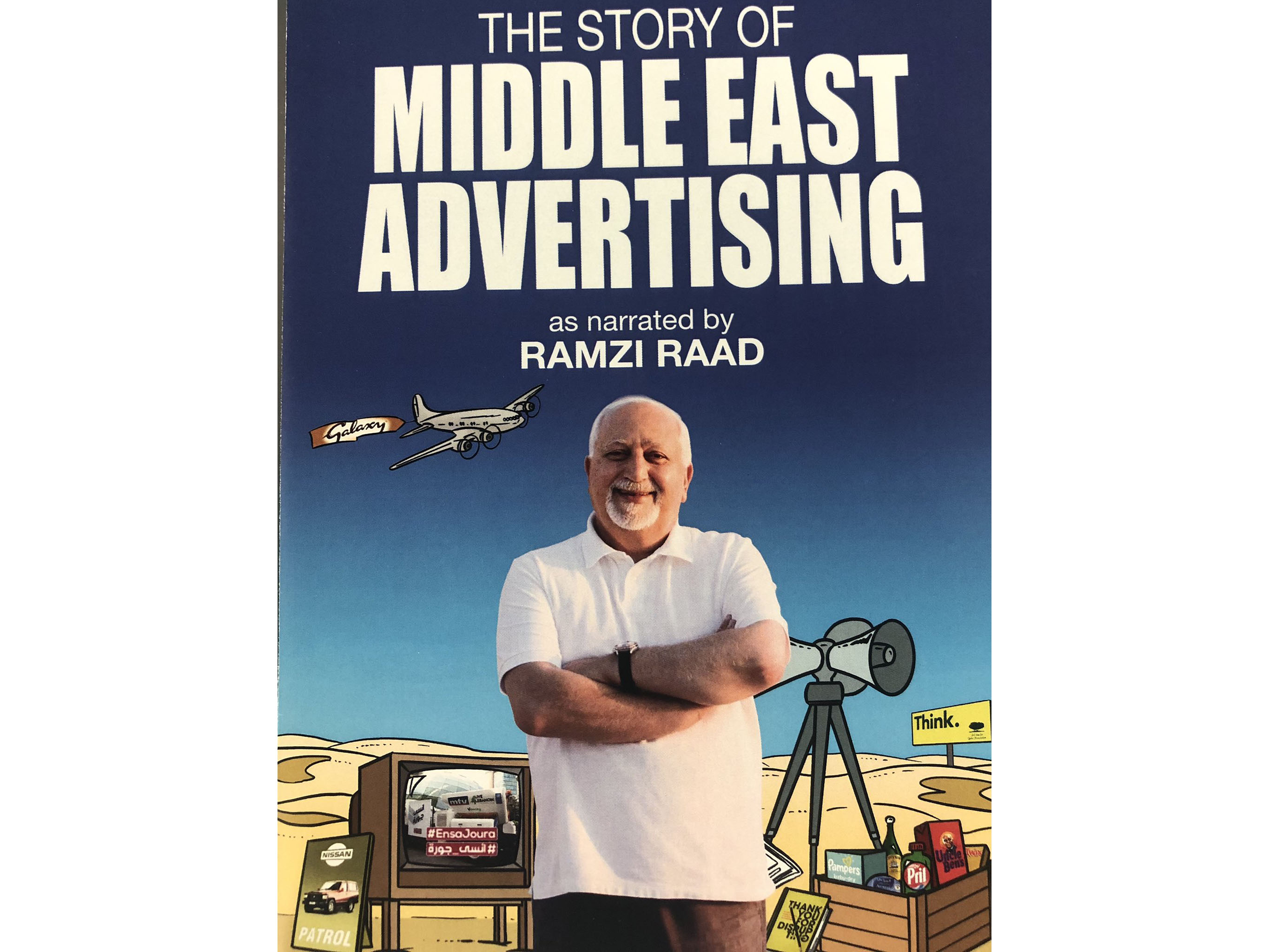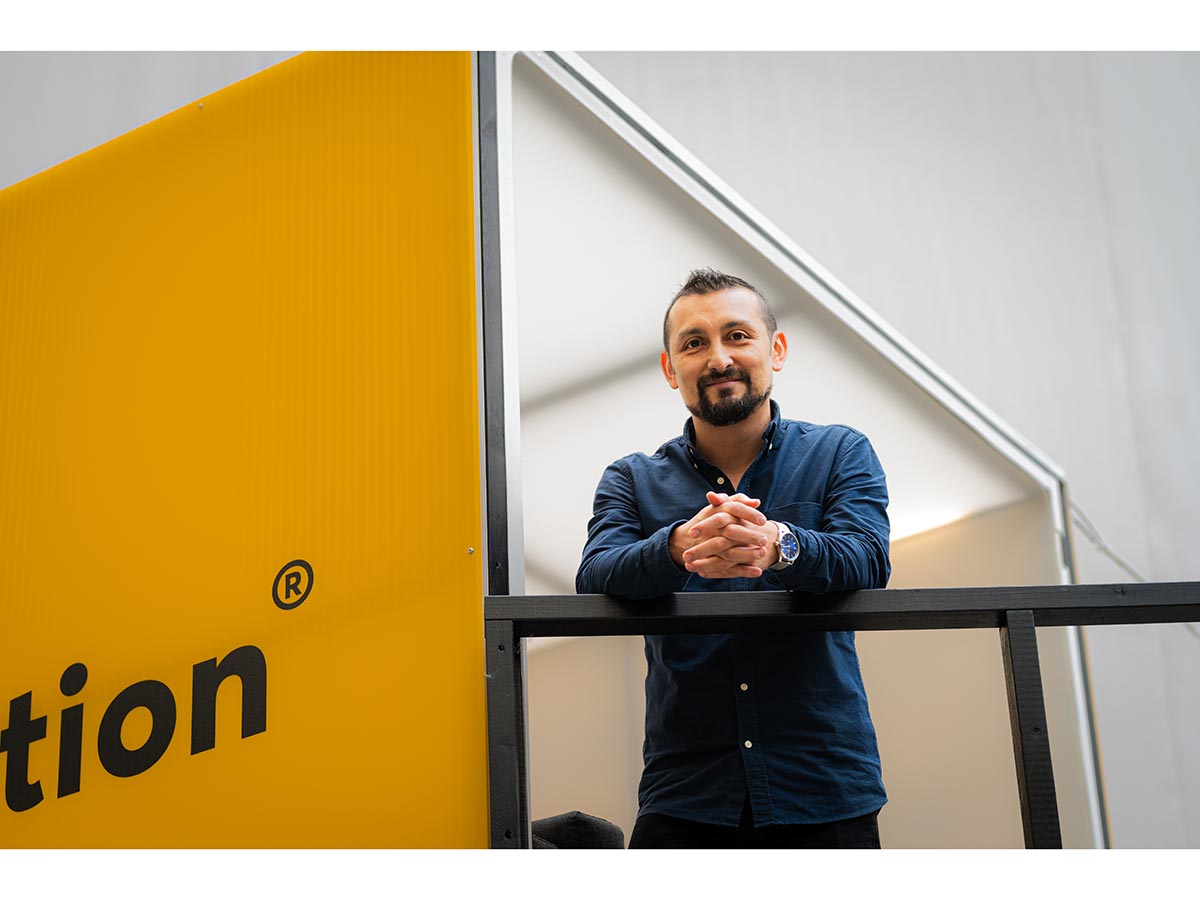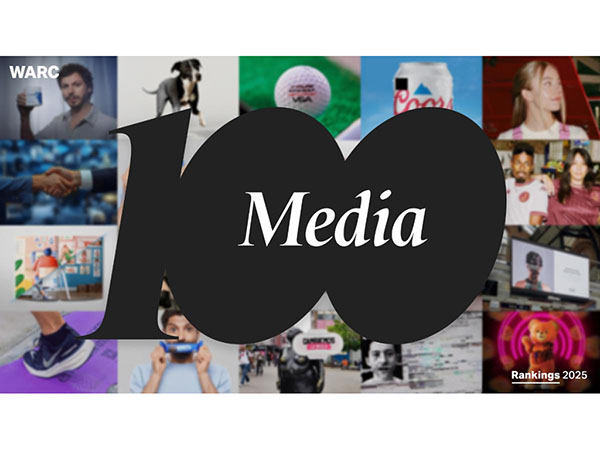News - Advertising
Ramzi Raad on the challenges and triumphs of building a successful advertising industry in MENA
by Ghada Azzi
March 27, 2023
ArabAd sought to gain additional insights from Raad beyond his highly informative book, with its 141 chapters spanning 540 pages. The book is intended to guide and inspire communication students and newcomers to the advertising industry by highlighting the challenges faced by pioneers in developing a robust communication industry in the Middle East, and bringing it to its current level.
In your book, you highlight the advertising industry as the hero. However, a significant portion of the book focuses on your personal experiences and journey in the field. Can one distinguish between personal and professional experiences in the advertising industry?
My book is a story and stories need to be told. They require narrators to bring them alive; and I chose to be the narrator of “The Story of Middle East Advertising.” In the opening chapters, I introduce myself to overseas readers, while making sure to maintain a professional distance from similar books like "صناعة الإعلان", "Play it Again", "لم انته", and "La Télé Quelle Histoire." This proves that it is possible to separate the personal from the professional. My presence can be seen throughout the book, much like Alfred Hitchcock's in the feature films he produced.
In the book, there are anecdotes that suggest that your career in the industry has taken a toll on your personal life, such as missing your second wedding anniversary with your wife and newborn and forgetting your own birthday while pursuing a new client in Dubai. To what extent do you believe that the industry has impacted your personal life and how much has it taken away?
The advertising industry is both tempting and challenging, and one must be mature and aware of life's realities to avoid neglecting personal obligations. For 50 years, I have been striving to balance my work and personal life by sharing my excitement for the industry with those around me. This may have been the reason my three sons excel in the communication business, and I dedicated my book to my wife as a 50th anniversary present.
“My book aims to inspire readers to remain dedicated to their clients and business, maintain professionalism, honesty, and consistency, set aside personal biases and continuously learn without hesitation”
Without diminishing the value of your career or accomplishments, it seems that a number of fortunate coincidences and being in the right place at the right time played a role in your success, such as the chance meeting with the Abdel Latif Jameel family and the way P&G was passed on to you through Intermarkets by Mokhtar Shamli. While these specific events cannot be replicated by others, is there a lesson or takeaway that readers can gain from your experiences?
What may seem like a chance occurrence, may actually be the result of a business strategy developed over the course of years. The P&G example is a prime example of this.
It is important to remember that Khalil Fattal & Sons (KFF) were shareholders in Intermarkets, an advertising agency that originated as their own in-house agency. KFF had a long-standing relationship with Unilever in Lebanon, and the connection between the two companies had grown to involve senior members from both sides. Lasidlas Guerrovich was the general manager of KFF for an extended period, and Erwin Guerrovich, the CEO of Intermarkets, was the son of Lasidlas. Erwin had also spent several years training with Unilever in Port Sunlight.
The meeting that my Intermarkets colleagues and I, Marc Manasterski, Youssef Habbab, and Eddie Moutran, had with Erwin Guerrovich in London was not a coincidence. We forcefully argued and ultimately convinced him to resign the Unilever advertising account. This was viewed as a bold move by the business community and the advertising industry in the Middle East, as it was unprecedented at the time.
As office managers, the four of us were faced with the challenge of identifying and winning a replacement contract after persuading the owners to throw millions of dollars out of the window. Securing a contract with P&G took years of waiting for the right opportunity to make our agency name known in Geneva. However, our presence in Jeddah on a Friday when the leading newspaper carried the headline "Tide Factory should be closed" was a fortunate coincidence. Our quick thinking and alertness in reporting the news to P&G when local distributors were closed for the weekend turned it into a valuable opportunity. This led to P&G's crisis management and legal teams rushing to Saudi Arabia to launch a corrective plan upon their arrival.
The unexpected visit of Mokhtar Shamli to Dubai TV without prior scheduling was frustrating, particularly given the ongoing conflict in Lebanon and the stress it had caused the older advertising professional. To make matters worse, the Advertising Manager at Dubai TV displayed a rude attitude toward him.
My presence at Abdel Hakim Totah's office that day was a fortunate coincidence for all involved, thanks to my alertness and the strong relationships built on mutual respect that I cultivated wherever I went. Growing up, my home was adorned with inspirational quotes, and one that particularly resonated with me was, "Treat others how you want to be treated - Matthew 7:12." I treated Mokhtar Shamli with the care and respect that I believed a war-weary Lebanese deserved. When Mokhtar went to speak with the Arab CEO of P&G, his lifelong friend, about his plans to retire, he was asked to ensure that the P&G advertising business was left in capable and trustworthy hands before he stepped down. Knowing all the advertising professionals and agencies in the region, Mokhtar called me.
My book aims to inspire readers to remain dedicated to their clients and business, maintain professionalism, honesty, and consistency, set aside personal biases, and continuously learn without hesitation.
How did you navigate and work effectively among the egos and large personalities in the Lebanese advertising industry, as highlighted in the book with examples such as sharing double rooms at a hotel in Dubai and the lukewarm response to Samir Fares being elected head of IAA?
Life is a school, and business life is a university. Reflecting on my experiences working with different types of people, I've come to realize that it takes a strong will and discipline to navigate these interactions. It's important to observe, learn, and maintain a polite and professional demeanor, allowing your actions to speak for themselves rather than constantly promoting yourself. This approach is not easy, as it goes against the norm, but once you begin to see the rewards of your hard work, you'll find that the satisfaction of your accomplishments is more fulfilling than seeking recognition.
“It's important to observe, learn and maintain a polite and professional demeanor, allowing your actions to speak for themselves rather than constantly promoting yourself”
You also speak of the beginnings of some of the people who later went to bigger and greener pastures. Do you believe that your company served as an "incubator" for talents like Philippe Skaff, Ramsay Najjar, and Eddie Moutran, who went on to bigger and more successful ventures?
I have been fortunate to have a talented and dedicated team of individuals in the advertising industry. One junior delivery boy stood out to me as he worked hard to become a regional media executive at a large agency. Another team member, who initially had no experience in advertising, quickly rose through the ranks to become the head of a leading network and even named their first-born after me. The examples of my team members' success are numerous and one of the most rewarding experiences for me is when the CEO of a major real estate company in India credits me as their lifetime coach during presentations.
Your experience in the domain cannot be replicated in today’s world. How can the knowledge and skills you gained as a photographer, art director, and business handler in the past be relevant and useful for today's advertising industry, where roles are more specialized and compartmentalized? How can the experiences and knowledge you have gained be relevant and useful for the current generation of young people in the advertising industry?
In 1970, I took necessary steps to help an advertising agency thrive and grow in the Lebanese market of that period. As the years went by, my role evolved as I established a network of full-service agencies, complete with account management teams, planners, creative directors, copywriters, photographers, and more. These agencies were compartmentalized both vertically and horizontally.
Today, the advertising industry has undergone significant changes, particularly in terms of message delivery. Despite these changes, the fundamental principles of the communication business remain the same - clients and agencies working together to achieve a specific business or image objective. The key to this task is a well-drafted and interrogated brief, which continues to be a critical aspect of the process. Additionally, the relationship between the client and agency is crucial, and the rules and experiences of the past are still highly relevant.
I believe my generation, or those who have not retired like me, continue to be valuable assets for our agencies. Our past experiences and knowledge are still applicable in today's advertising world.
How do you feel about being defined as an addendum to the multinational name TBWA\RAAD?
The presence of the RAAD name alongside that of TBWA has been a unique occurrence among the advertising agencies in our region. Instead of causing concern, this fills me with a great sense of pride. Furthermore, in March 2016, during TBWA's global meeting held in South Africa, myself and five of my colleagues were honored with the title of TBWA FOUNDERS. This personal recognition was a result of my dedicated efforts in building and promoting the TBWA brand in the MENA region since 1986.
With the advertising industry facing challenges as interest in traditional advertising declines, do you still find joy and hope in the industry and can you envision a path forward for yourself within it?
Throughout my 50-year career in advertising, I witnessed numerous changes in the industry. Some were global in scope, others were specific to certain regions, and some were unique to individual markets. Despite these changes, my passion for advertising never wavered. Even in retirement, the industry continues to bring me joy. I am hopeful that I can assist in the establishment of a school of Advertising at The American University of Beirut in the near future.
You conclude the book by saying you used to watch the commercials and skip the shows on TV, but now you allow yourself the luxury of actually watching the shows. Which shows are these?
I am hooked on watching documentaries and travel films such as The Crown, Fugitive: The Curious Case of Carlos Ghosn, David Attenborough's A Life on Our Planet, and Life in Color.
What is the most significant lesson you learned from working in the industry, and for readers, what is the main takeaway from the book?
The lesson for me and my readers is clear: Honesty is key. Be truthful and authentic, and you will surely shine in today's world.












